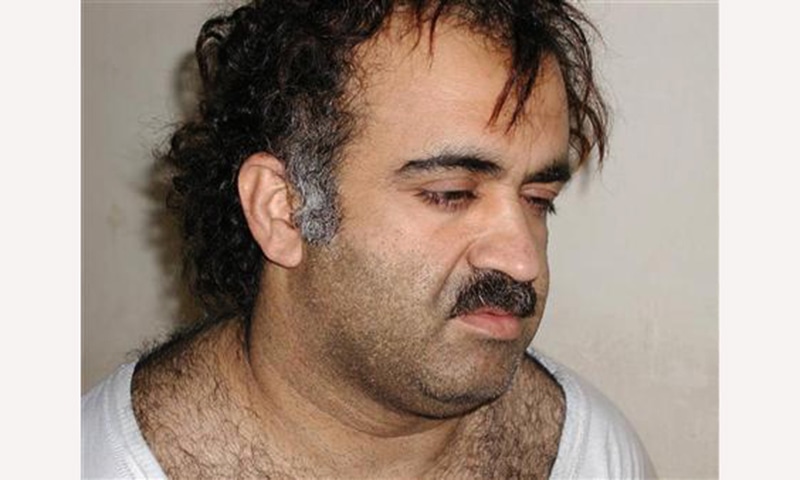GUANTANAMO: The five men accused of planning the September 11, 2001, attacks are currently detained at the US naval base in Guantanamo Bay, Cuba, where hearing of the 14-year-old case will resume Thursday.
Khalid Sheikh Mohammed, Walid bin Attash, Ramzi Binalshibh, Ali Abd al-Aziz Ali and Mustapha al-Hawsawi were citizens from Pakistan, Saudi Arabia and Yemen. All five, however, were eventually captured in Pakistan.
Khalid Sheikh Mohammed
50-year-old Mohammad, who has publicly declared himself the principal planner of the 9/11 attacks, was born in Pakistan. He grew up in Kuwait, and was later educated in the United States.

Mohammad is a suspect in a string of other crimes, including the beheading of US reporter Daniel Pearl in 2002. Popularly referred to as KSM, Mohammad was waterboarded 183 times since his capture in Pakistan in 2003 and his transfer to Guantanamo in September 2006.
Ramzi Binalshibh
43-year-old Binalshibh is a citizen of Yemen, and lived in a rented flat in Hamburg, Germany, with suspect 9/11 ringleader Mohammed Atta.
US officials claim he tried for the US visa four times with the intention of becoming a pilot-hijacker, but failed.

Captured in Pakistan in September 2002, bin al-Shibh is accused of serving as the primary link between the hijackers in the US and Al Qaeda leaders in Afghanistan and Pakistan during the eight months before the attacks.
Ali Abd al-Aziz Ali
A Pakistani raised in Kuwait, Ali Abd al-Aziz is Khalid Sheikh Mohammed's nephew, and a cousin of jailed 1993 World Trade Centre bomber Ramzi Youssef.
Also known as Ammar al-Baluchi, he is believed to have played an important role in helping facilitate the 9/11 attack's logistics by transferring funds to US-based operatives. He also helped the hijackers travel from Pakistan to the US.
He was captured in April 2003 in Pakistan.
Walid bin Attash
Raised by Yemeni parents in Saudi Arabia, Attash is accused of helping coordinate the 2000 attack on the USS Cole destroyer that killed 17 US soldiers in Yemen.
Also known as Khallad ("Father of the Leg"), he lost his right leg during a 1997 battle in Afghanistan, where he fought as part of the Northern Alliance against the Taliban government. His brother died in the same battle, leading Khallad to join Al Qaeda.
Khallad served as Osama bin Laden's bodyguard, and also supervised trainings at an Al Qaeda camp. Two of the 9/11 hijackers trained under him, along with other operatives.
He was captured in April 2003 along with Ali in Pakistan.
Mustapha al-Hawsawi
Mustapha was a Saudi associate of bin Laden's, and is accused of being the group's financial backbone in its first years of existence. He allegedly arranged funding for the 9/11 plot.
Both Hawsawi and Ramzi Binalshibh are said to have served as a communications link between Khalid Sheikh Mohammed and the 9/11 hijackers.

He was captured in Pakistan in March 2003, when special forces stormed the villa in which he was hiding along with Mohammed.











































